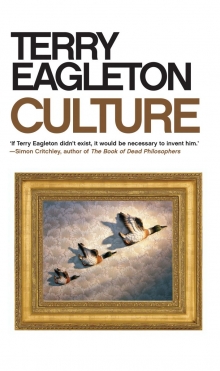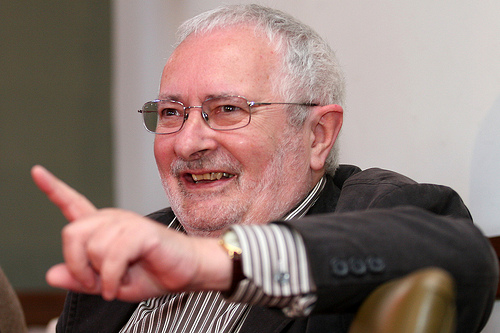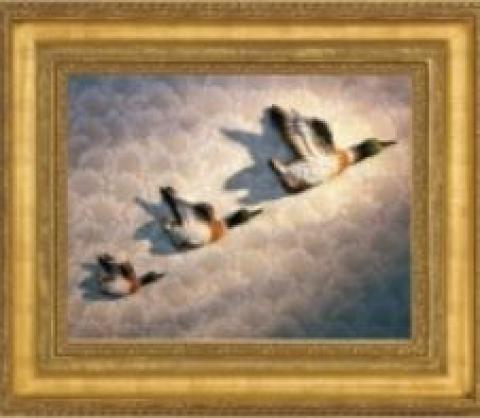By Terry Eagleton
Yale University Press, 192 pages
Hardback: $25.00
May 24. 2016
ISBN: 9780300218794
Culture is the latest book by academia's Jeremy Corbyn, but hopefully not his last.
Terry Eagleton, the Jeremy Corbyn of university English departments, has written about culture, not for the first time and not, I hope, for the last. But if he's been here -before with his trademark acerbity and dusty views of postmodernism, there are some bonus novel elements. Chief among these are the sideswipes at contemporary fatuities: the diminution of the universities as places of humane learning; the selective notion of safe spaces in debate; the cultural industry as a component of GDP. Those who argue excitedly for public investment in the arts or universities on the grounds that the returns from the knowledge economy are enormous won't find much joy here.
Professor Eagleton's thoughts on what constitutes culture - a national way of life, the very system of nurture that enables us to survive as a species, or a body of civilised learning common to European elites - are interesting if inconclusive, though one cannot argue with the fundamentals: "A professional caste of artists and intellectuals, as Marx recognises, becomes possible only when not everyone needs to labour for most of the time." Briskly, he cuts a swath through much of the theory and all of the jargon and seems, when all is said, to be happy enough with Wittgenstein's idea of culture: it's just there; it's what we do.

Much of the book revolves around individuals for whom culture and politics are bound up with each other - Edmund Burke and Oscar Wilde, but also Swift, Herder, William Morris, T S Eliot and Eagleton's intellectual pin-up, Raymond Williams. It's not surprising that the first three are Irish Protestants: there is a fruitful tension here between the politics of exploitation at home, the privileges they inherited by dint of their class and creed, and their position within the English intellectual elite.
Perhaps the best essay is on Burke. He may be the pre-eminent conservative but he had profound sympathy with violent rebellion in Ireland and was an eloquent critic of slavery. As Eagleton observes, "No thinker has articulated the idea of culture as the social unconscious more magnificently". Burke's description of the state as a partnership between the living, the dead and unborn generations is applicable to culture (not a word he used), but equally to the Church. His notion of culture - or, more accurately, "manners", combined with custom, tradition and public affection - is simultaneously a product of political power, an invaluable asset in exercising it and a powerful restraint on it.
What unites Burke with his contemporary and fellow philosopher Johann Herder is an appreciation of religion as "a species of emotional democracy, a treasure house of instincts and affections", and here Eagleton is on familiar ground. There is a popular, authentic brand of culture that both writers respect, located in religion and tradition, and which was at odds with the contemporary fashion of the time - what they regarded as the "bogus cult of universal humanitarianism" - or, as G K Chesterton put it, how to love your fellow man and hate your next-door neighbour.
But Eagleton is willing to take issue with Herder's legacy, "the doctrine that language and thought are inseparable", the idea that thought is nothing more than language, a kind of inner speech. With admirable common sense, he gives this short shrift:
. . . it is not clear that a toddler needs to be able to articulate the words `I'm just going to cough myself into a frenzy in order to distract my mother's attention from that damned baby' in order to be able to think it . . . There is a kind of practical or somatic intelligence at work here which does service for some more articulate form of discourse.
Another good essay considers Wilde, the most perfect self-made work of art. In "The Soul of Man Under Socialism" (1891) Wilde wrote that man is meant not for labour, but for leisure, which automation will provide. It is hard to share this optimistic view now, as we grimly contemplate a workplace populated by robots.

Terry Eagleton
Culture in the Eagleton world is literature and ideas; music barely features and art only in the remarkable assertion that there is no progress in art from, say, Aboriginal painting to German expressionism. Really?
Yet still there is no critic of the bogus populism of late-capitalist culture more formidable than Eagleton, whose chief influences remain, as ever, St Thomas Aquinas and Karl Marx. He is his own best advertisement for the old, elitist idea of culture in the sense of broad learning, articulate argument and trenchant literary judgement. That, alas, is diminishing all around us.
[Melanie McDonagh writes for the Evening Standard and has contributed to the Guardian and The Spectator, among others.]


Spread the word